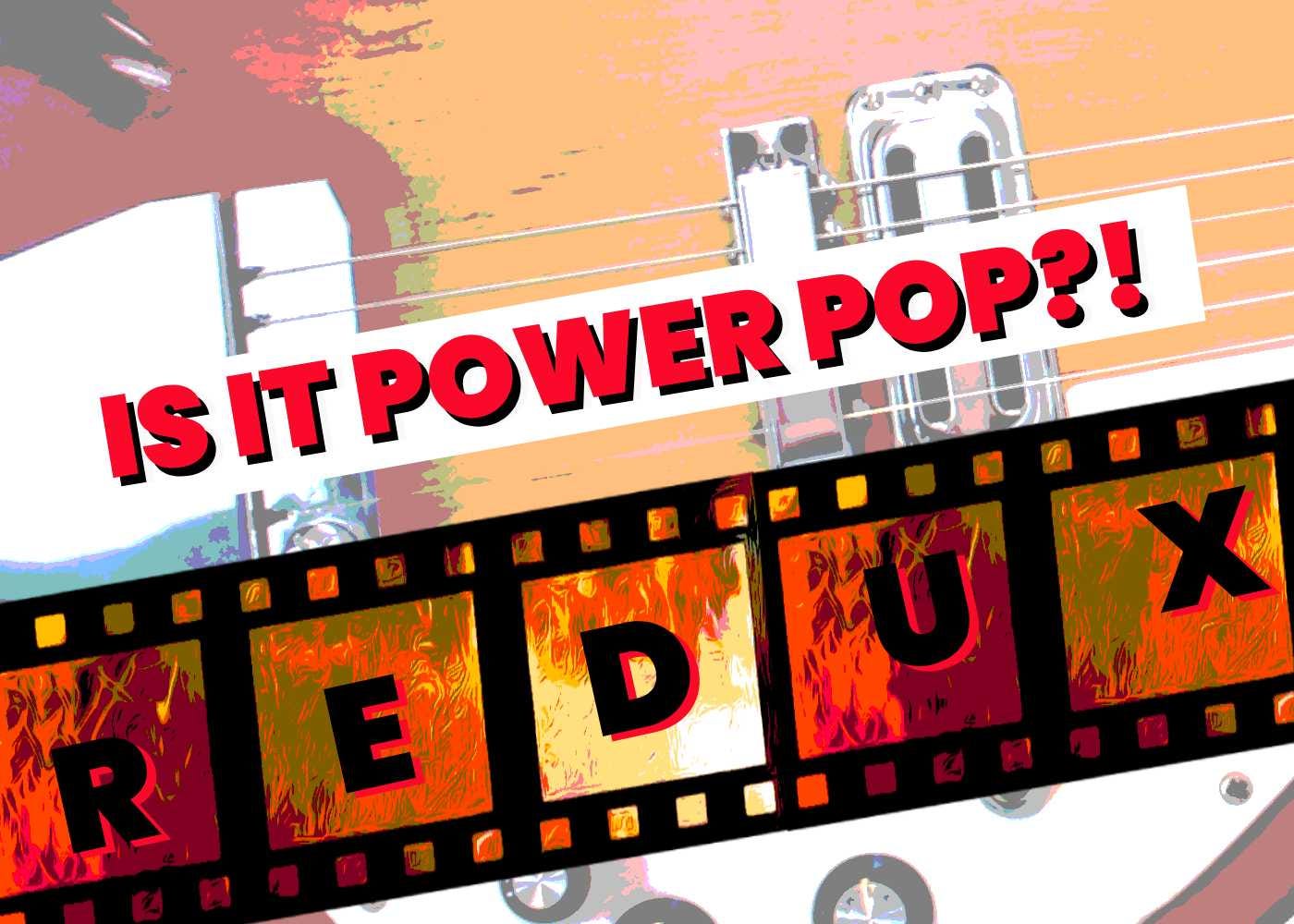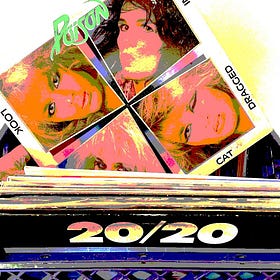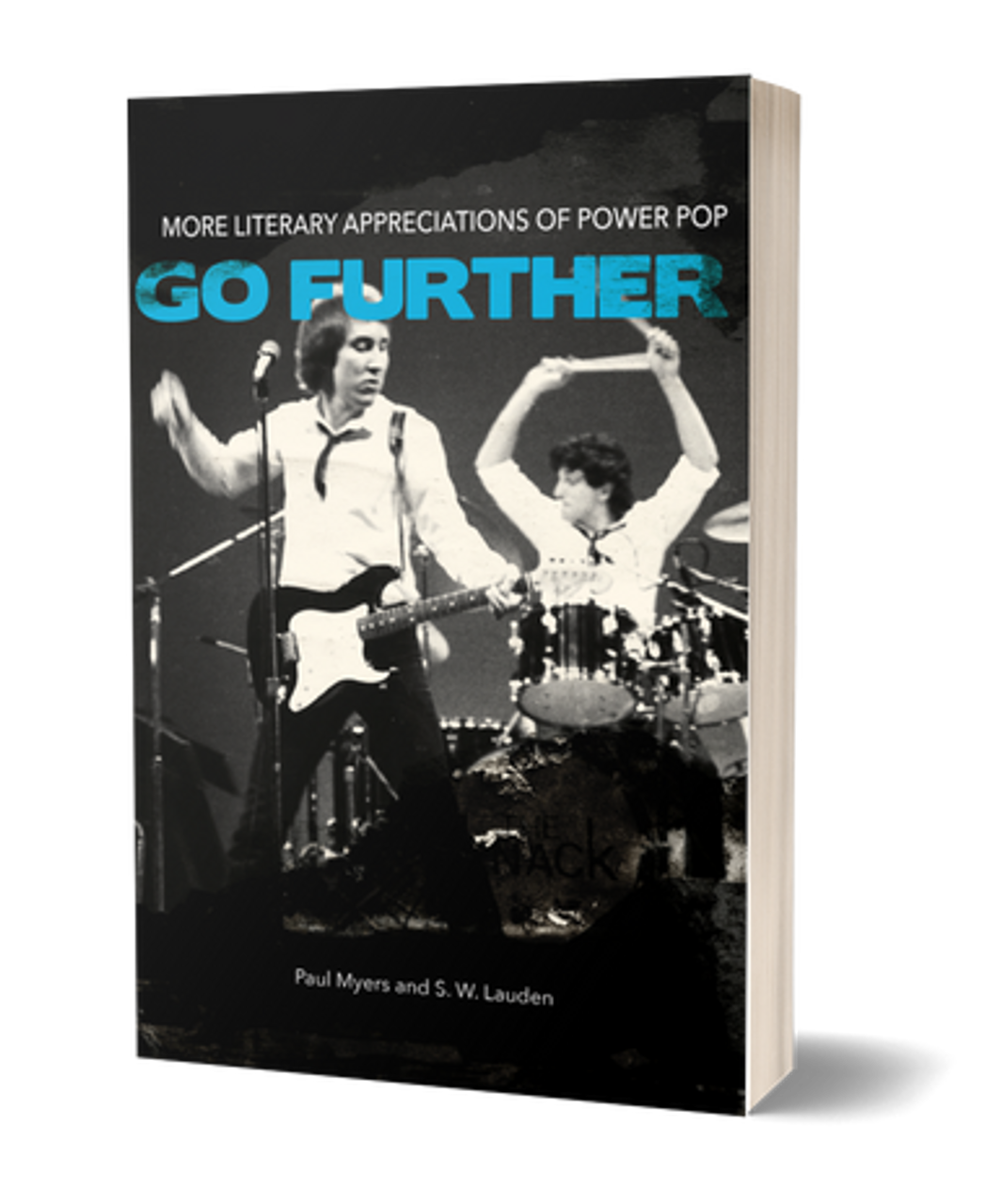Remember The Lightning just got through our second round of “Is It Power Pop?!” guest posts.
To date there have been fourteen installments contributed by many talented music writers, musicians, and/or genre fans. I really enjoy this series and I’m thankful to all of the participants for sharing their perspectives on this genre we all love.
So, what have we learned so far?
For starters, recent entries have gotten more adventurous which is thought-provoking but perfectly understandable. The first wave of contributors helped define the scope of this project by (mostly) highlighting core genre acts such as Raspberries, Flamin’ Groovies, Dwight Twilley, The Toms, Bram Tchaikovsky, and Material Issue.
And, of course, a certain 20/20 song you might be familiar with by now…
That first handful of posts also included some interesting outliers like Queen, Pilot, and The Replacements—as well as lesser-known acts like The Double Naught Spies and Tina and the Total Babes—but building a sturdy foundation organically emerged as the main focus.
Kevin Alexander (#1) kicked things off with aplomb, while Dan Epstein (#2) added five more excellent song choices to form the foundation of the series. John M. Borack (#5) gave us a mix of genre icons and a few scholarly obscurities, while Lori Christian (#8) shared her personal journey to power pop fandom.
“Towards the late ‘70s and early ‘80s the new wave bands I was hearing on KROQ put a shift solely towards power pop, especially The Knack, Shoes, The Rubinoos, The Plimsouls and women’s bands like Nikki and The Corvettes and Josie Cotton.” — Lori Christian (#8)
It was probably Bobby Martinez (#6) of Dandy Boy Records who first shook things up by highlighting modern artists like Softjaw, Josephine Network, and The Goods. Although, looking back I noticed that Mike Randle (#4) of Baby Lemonade/Love had a few early curveballs on his list as well, including New York Dolls and The Kinks.
Later installments offered progressively more interesting angles rather than echoing earlier contributors or genre orthodoxy. My invitations always include a link with all of the previous posts, so it’s really no surprise that the second wave happily ventured further out into power pop’s periphery—which I fully support.
Some diehard fans probably find this a little annoying (again, understandable), but I generally appreciate the sometimes challenging perspectives. The title of the series is a hyperbolic question, after all. (BTW: The “?!” symbol is an “interrobang,” and yes it’s already the name of several bands around the world if Google can be trusted.)
“Eddie Cochran? Prince?! Miley freakin’ Cyrus?!” you might have screamed at your screen after reading great guest posts from Javier Romero (#14), Jason P. Woodbury (#13), and Thea Wood (#10). Or, as a friend recently texted: “(A)ll you people contorting to say Miley Cyrus and Prince are power pop should probably open the windows and get some fresh air.”
Ha! New and different perspectives are fresh air as far as I’m concerned…but I understand the point being made.
“I’ve never been too strict about policing the genre’s borders, which means as long as a song embodies at least some of the foundations of “traditional” power pop—strong melodies, hooky surprises, and/or straight ahead formalist cohesion—I think you’re in the clear to use it as freely as your feelings lead you to.” —Jason P. Woodbury
I do have to admit that some of those artists challenged my personal opinions too when they hit my inbox. As RTL’s lone editor, I’m the first to read these submissions—ostensibly with a wide open mind—and I am still occasionally forced to confront some differing viewpoints.
That’s ultimately a good thing in my book, even if I only listen to the suggested songs once or twice through power pop ears before returning to the comfort of The Records, The Shivvers, Redd Kross, Teenage Fanclub, Fountains of Wayne…and Van Halen?!
I seriously love that “Dance The Night Away” serendipitously popped up on back-to-back installments from Eric Skodis (#11) and Mike Maple (#12). That isn’t exactly consensus, but they’re both great musicians who know a thing or two about this beloved and beleaguered rock subgenre.
“Power pop has always been a hard idea to truly pin down, and I think that’s what makes it fun to talk about. People usually point to major open chords, strong sense of melody, aching harmonies, yada yada yada. Boring. Power Pop is in the ear of the beholder, and one person’s power pop is another person’s pop punk is another’s person’s arena rock and so on and so forth.” —Mike Maple (Liquid Mike)
Is Van Halen a secret power pop band? Not likely, but they have at least one track that draws the ears of fans. Likewise, Andy Solum (#9) admits that KISS was his early portal into power pop: “‘Shout It Out Loud’ and Paul Stanley’s ‘Wouldn’t You Like to Know Me?’ had all the hallmarks of what satisfied my growing musical appetite.”
“Seriously?! What’s next, Def Leppard? Hanoi Rocks? Poison?!” Well, maybe…
Can Hair Metal Be Power Pop?
I originally posed this question and published a version of my response in February 2023, during Remember The Lightning’s infancy. It has always been a favorite of mine, mostly because of the varied reactions it gets (some music fans hate the term “hair metal”; some detest genre discussions, etc.). Beyond the extremes were many thoughtful and interestin…
I haven’t personally contributed to “Is It Power Pop?!” and I don’t plan to.
RTL subscribers get a pretty steady diet of my perspectives all year, so what would be the point? That said, I think it’s important for all future participants and anybody reading along at home to occasionally be reminded of our shared launching pad.
To that end, I’ve included eight songs below that—while still up for debate—are often cited as examples of power pop’s sweet and crunchy core. (BTW: Including them here doesn’t mean they’re off the table for future posts; it’s each contributor’s purist and/or provocative personal perspectives that interest me most.)
And that’s not just another opinion from yours truly. These eight tracks were actually chosen in a public bracket tournament that
, John Borack and I put together in partnership with Rare Bird Books and Big Stir Records in 2021 around the release of our second essay collection, Go Further.It all started with 32 songs (chosen by the three of us):
“Go All the Way” — Raspberries
“September Gurls” — Big Star
“No Matter What” — Badfinger
“Couldn’t I Just Tell You” — Todd Rundgren
“Shake Some Action” — Flamin’ Groovies
“Cynical Girl” — Marshall Crenshaw
“I Can’t Take It” — Cheap Trick
“Yellow Pills” — 20/20
“Starry Eyes” — The Records
“Girl of My Dreams” — Bram Tchaikovsky
“My Sharona” — The Knack
“Baby It’s Cold Outside” — Pezband
“Precious to Me” — Phil Seymour
“Teen Line” — The Shivvers
“Zero Hour” — Plimsouls
“What I Like About You” — The Romantics
“Too Late” — Shoes
“The Good in Everyone” — Sloan
“She’s So Young” — The Pursuit of Happiness
“Somebody Made for Me” — Emitt Rhodes
“Rock ’n’ Roll Girl” — The Beat
“I Wanna Be Your Boyfriend” — The Rubinoos
“Places That Are Gone” — Tommy Keene
“I’ve Been Waiting” — Matthew Sweet
“What You Do to Me” — Teenage Fanclub
“Diane” — Material Issue
“Behind the Wall of Sleep” — Smithereens
“I’m On Fire” — Dwight Twilley Band
“Dreaming” — Blondie
“Solar Sister” — The Posies
“Little Red Light” — Fountains of Wayne
“She Say Yea” — The Scruffs
There were five rounds of online voting with some truly brutal matchups. By round three, hundreds of voters whittled it down to the eight (mostly ‘70s!) tracks below…






I must concur with that Van Halen song. Little Guitars is another one. Paul Stanley has another song called "Tomorrow" from Unmasked that fits the bill as well (I went Opus Dei and forced myself to listen to the whole record not long ago). Neither is a power pop band, but, well, you know...
If you could live in a musical moment, when the drum kicks in on "September Gurls" would be a great choice.